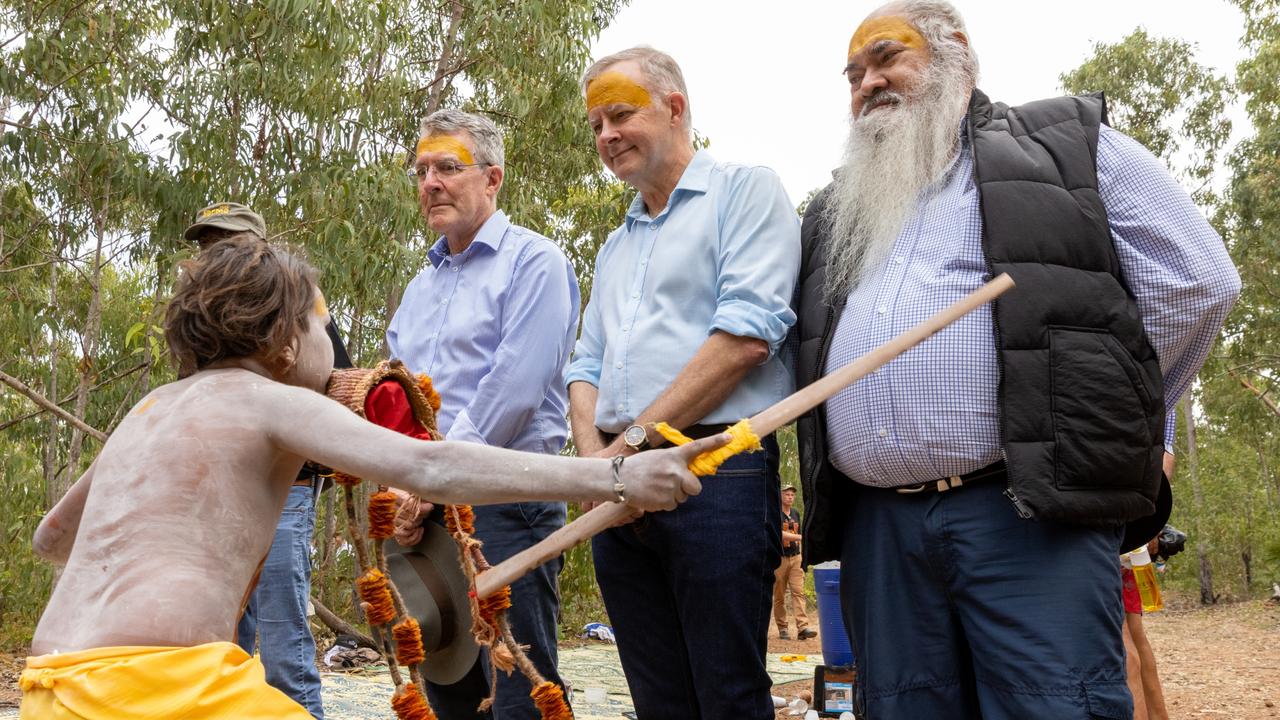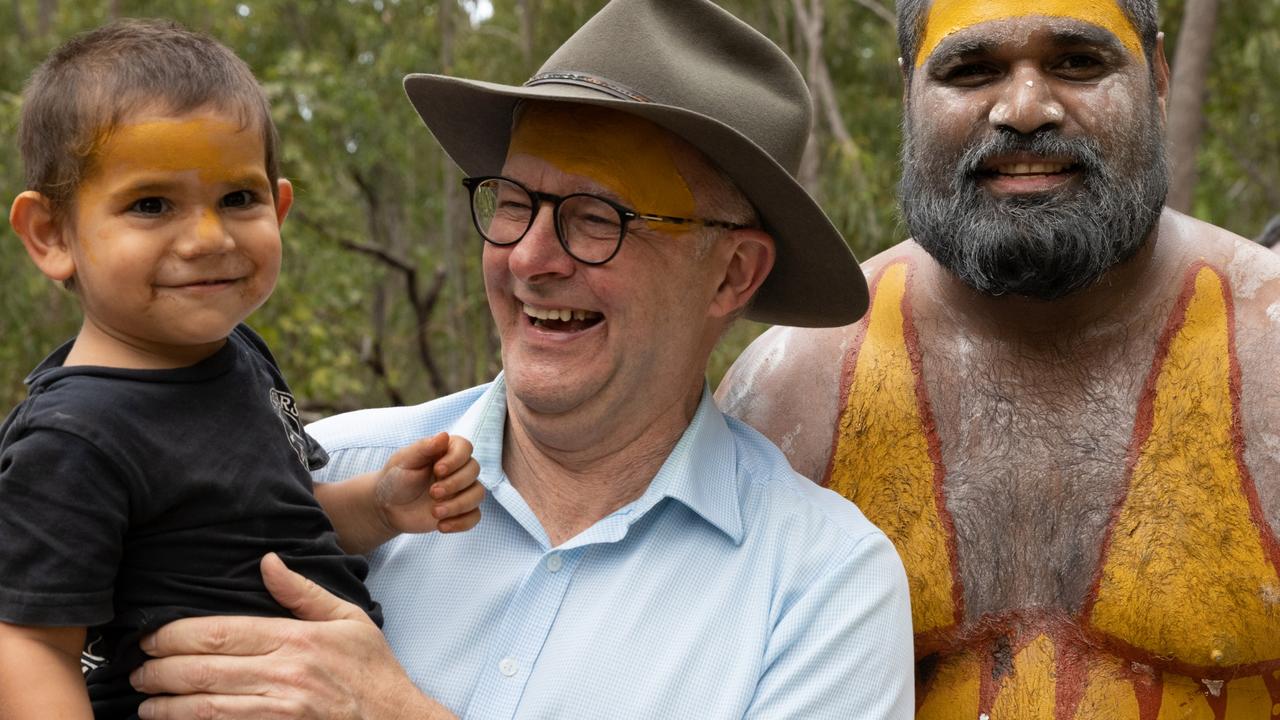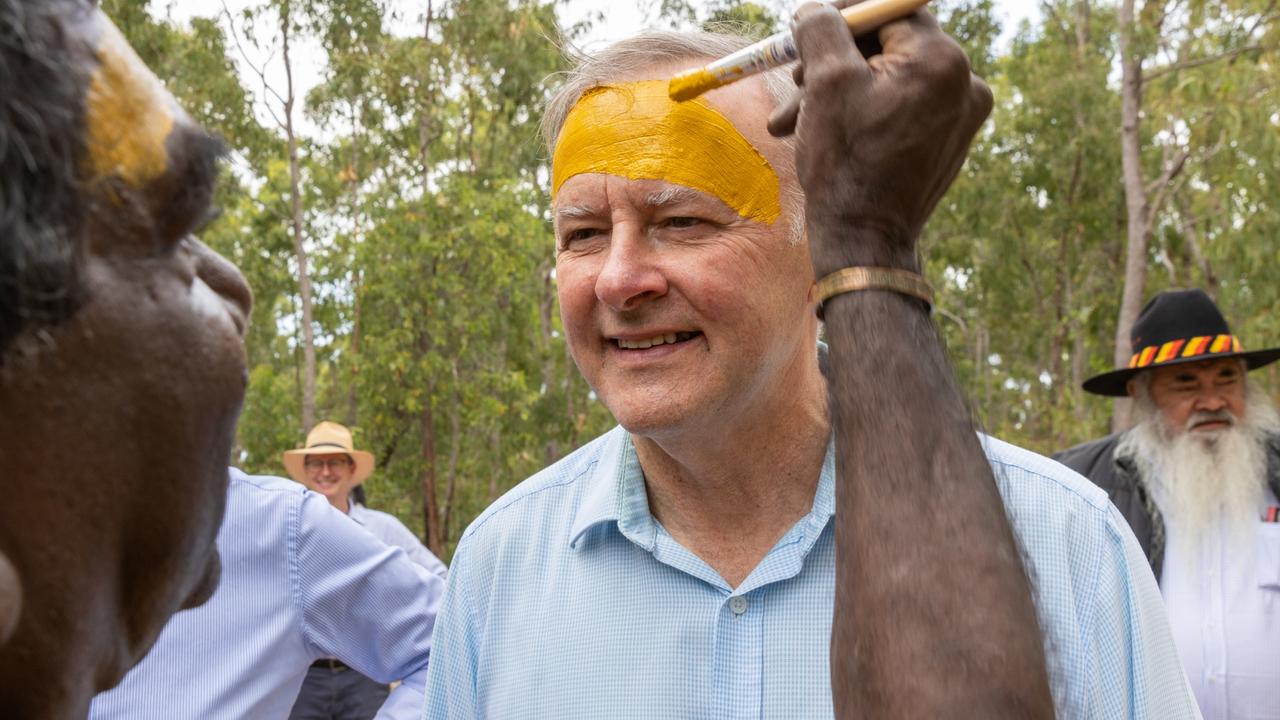Anthony Albanese outlines the proposed wording of referendum to enshrine voice for First Nations people
Anthony Albanese is preparing to deliver a major speech, arguing a major national change can be achieved in just three sentences.
Anthony Albanese has outlined for the first time the proposed wording of the referendum to enshrine a voice for First Nations people in the Constitution.
Vowing to work with “humility and hope” to deliver change, the Prime Minister will unveil the proposed wording of the referendum question on Saturday morning and the proposed changes to the Constitution.
Speaking at the Garma festival in northeast Arnhem Land, in the Northern Territory, he will pledge to offer the Australian people with the clearest possible referendum question.
“I believe the country is ready for this reform. I believe there is room in Australian hearts, for the Statement from the Heart,’’ he says.
“We should consider asking our fellow Australians something as simple as: Do you support an alteration to the Constitution that establishes an Aboriginal and Torres Strait Islander Voice?
“A straightforward proposition. A simple principle. A question from the heart.”
But stopped short of revealing a proposed date for the vote while it remains unclear if the proposal will secure bipartisan support.
A Voice to Parliament is a body enshrined in the Constitution that would enable Aboriginal and Torres Strait Islander people to provide advice to the Parliament.
Labor has committed to a referendum on the Voice in its first term. The Prime Minister also supports the creation of a Makarrata commission, designed to facilitate a treaty with Indigenous Australians.
Stream more on politics with Flash. 25+ news channels in 1 place. New to Flash? Try 1 month free. Offer ends 31 October, 2022 >


Mr Albanese said his “starting point” was a recommendation to add three sentences to the Constitution were as follows:
1. There shall be a body, to be called the Aboriginal and Torres Strait Islander
Voice.
2. The Aboriginal and Torres Strait Islander Voice may make representations to
Parliament and the Executive Government on matters relating to Aboriginal
and Torres Strait Islander Peoples.
3. The Parliament shall, subject to this Constitution, have power to make laws
with respect to the composition, functions, powers and procedures of the
Aboriginal and Torres Strait Islander Voice.
The idea of the advisory body to Parliament was previously rejected by the Coalition over fears it would become a “third chamber of parliament” and never gain the support of the public.
Earlier this week, CLP senator Jacinta Nampijinpa Price used her maiden speech to say a Voice to parliament would divide black and white Australia.
But the Prime Minister said the Voice was “not about special treatment, or preferential power” or a “third chamber” of Parliament.
“It will be an unflinching source of advice and accountability,’’ he said.
“Not a third chamber, not a rolling veto, not a blank cheque.
“This is simple courtesy, it is common decency. It recognises the centuries-old failure Paul Keating spoke of at Redfern, the failure to ask the most basic human question: how would I feel, if this were done to me?.”
Earlier this week, Mr Albanese wept and became emotional when he spoke of the importance of the referendum.
Labor frontbencher Linda Burney, a Wiradjuri woman, told Parliament this week that voters had “a once-in-a-generation opportunity to create lasting change.”
“History is calling us all,” she said.
“The Australian government is committed, as the prime minister just said, to implementing the Uluru statement in full.
“We will hold a referendum to enshrine a First Nations voice in the constitution this term of parliament.”

Mr Albanese noted that back in 1967, not a single member of the House of the Representatives or the Senate voted against the referendum provisions.
“In the same spirit – I hope that the Opposition and the crossbench will support the proposal, join the campaign for a Yes vote and bring their supporters to the cause. We will seek-out every ally and every advocate from ‘every point under the southern
sky’.”
The Prime Minister said he accepted that there may well be misinformation and fear campaigns to counter.
“But perhaps the greatest threat to the cause is indifference,’’ he said.
“The notion that this is a nice piece of symbolism – but it will have no practical benefit.”
The Prime Minister is leading a bipartisan delegation of MPs to this weekend’s Garma Festival in the Northern Territory which includes the opposition Indigenous affairs spokesman Julian Leeser.
Indigenous Australians Minister Linda Burney and Labor Senator Patrick Dodson, Mr Albanese’s special envoy for reconciliation and implementation of the Uluru Statement from the Heart, are also attending.
First Nations academic Marcia Langton, a co-chair of the senior design group on the Voice, said change was necessary because Australia’s constitution “remains racist”.
“There’s two racist provisions in it and the High Court decision that the commonwealth can do harm to us stands,” she told ABC Radio.
“All the details are there. This demand for more detail is just mischief making and selling confusion,” she said.
She said for far too long Aboriginal and Torres Strait Islander people had to tolerate “a type of structural racism that treats us as a race”.






